A New Wilmington, PA Amish Home For Sale (12 Photos)
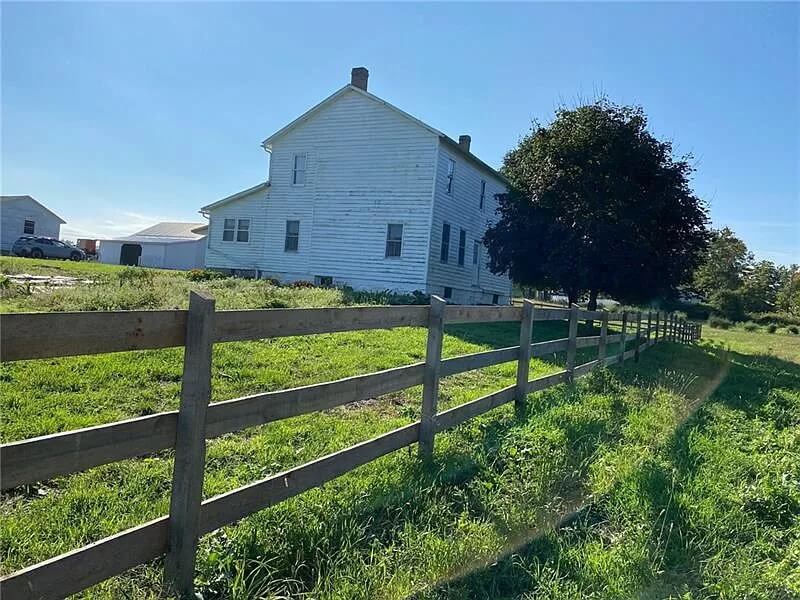
This latest Amish home for sale has a very simple listing. This is the New Wilmington, Pennsylvania Amish community, and the listing description at Zillow is just two lines long:
Amish farm with 2 greenhouses and 1312 SF barn, 3 hydrants. No plumbing, electric, or sewer!
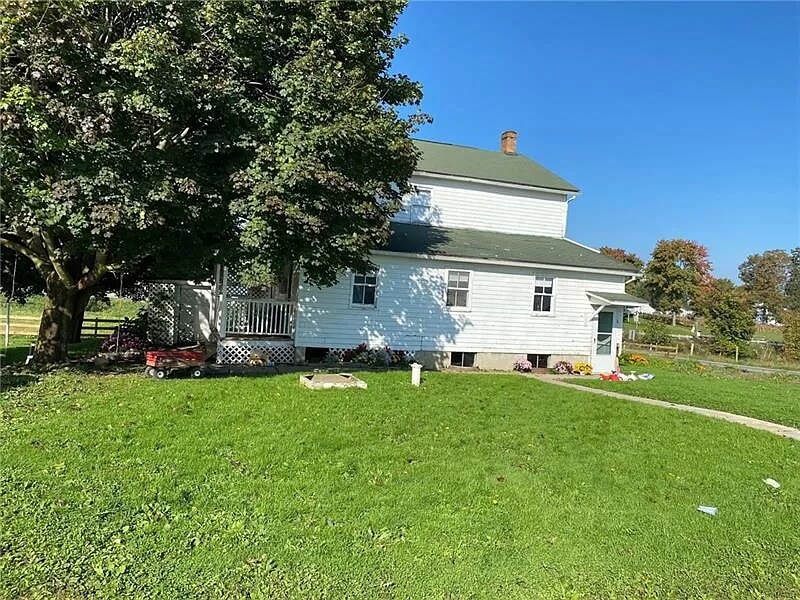
The New Wilmington community is on the plainer side of things, as the no plumbing/sewer detail suggests. We previously looked at another home in this settlement, but it was one that was originally built “English” and later converted for Amish use. That one looks downright fancy by comparison, though it’s the same plain community. This farm home, on the other hand looks to have been built by Amish.
The interior photos are pretty meager too, but let’s have a look. Inside, the home has a rough and a plain appearance, and we can see that off the bat by starting with a look at the basement.
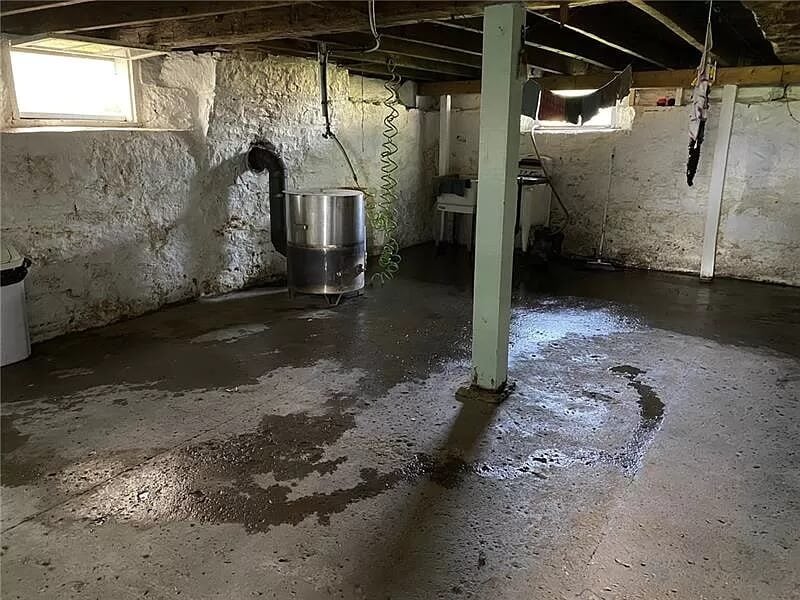
Some Amish basements are pleasant, even cozy, to spend time in. This is not one of them. Contrast that with this basement from another Amish home in PA, this one in Lykens Valley (in a much more progressive community):
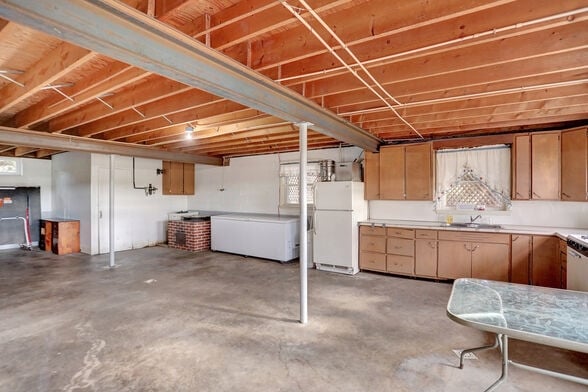
The above is not a critique by the way. Some Amish homes are just plainer than others and that’s the way they do it. They just don’t make their basements into secondary living spaces.
Upstairs we can see the living room with a small corner heating stove. Cozier up here, don’t you think.
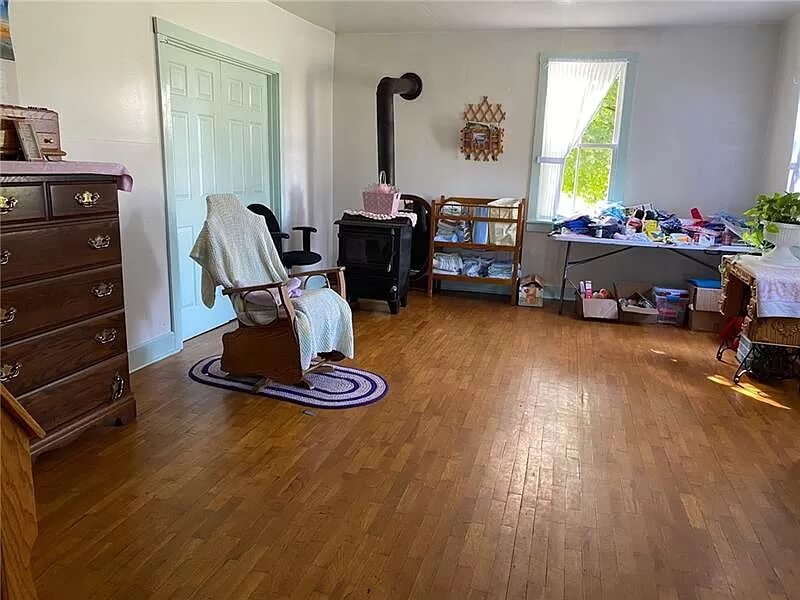
And kitchen. This toothpaste-y wall color – is it aquamarine? No sign of a refrigerator or running water in this plain Amish home. Remnants of breakfast on the table, and what looks like a caulk tube. Someone was doing a bit of fixer-upping, maybe.
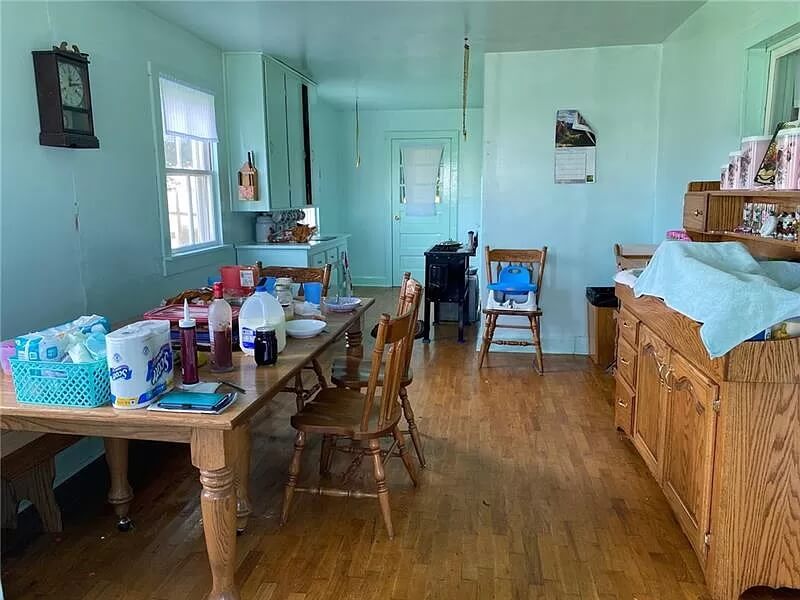
Some bedrooms. First this adult bedroom, in violet and dark blue. Photo looks like it has a filter on it, but the filter effect looks to be natural from those translucent curtains.
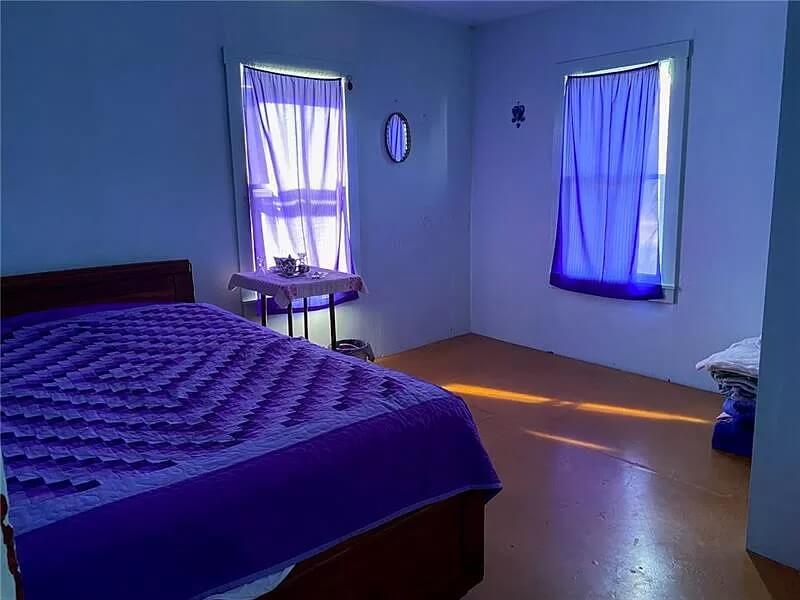
Children’s room.
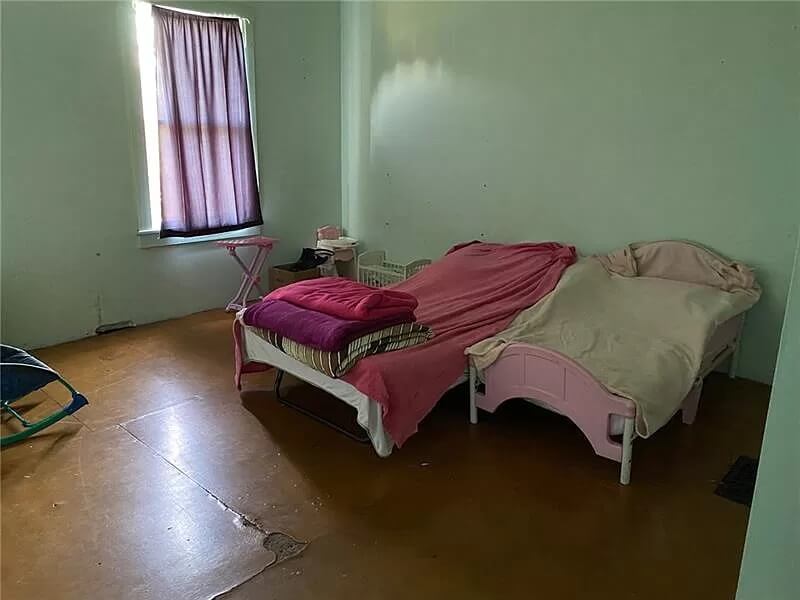
And what looks like a play area. Rough painted wood flooring in this room.
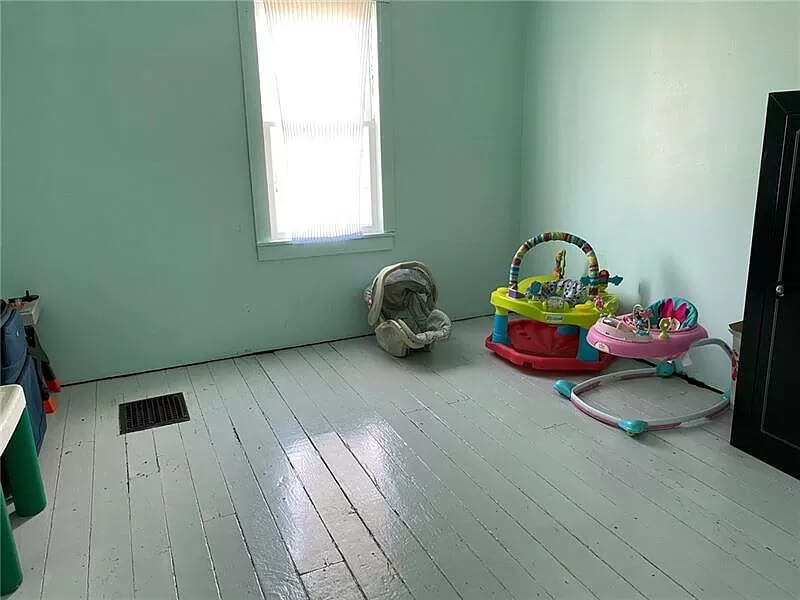
Back outside, we see more of the property, including the two greenhouses.
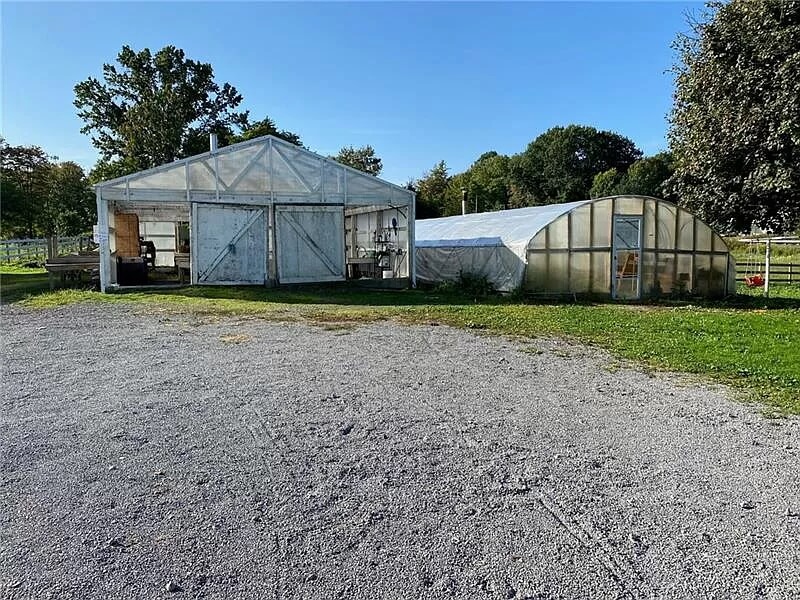
This canoe probably comes in handy for fishing trips.
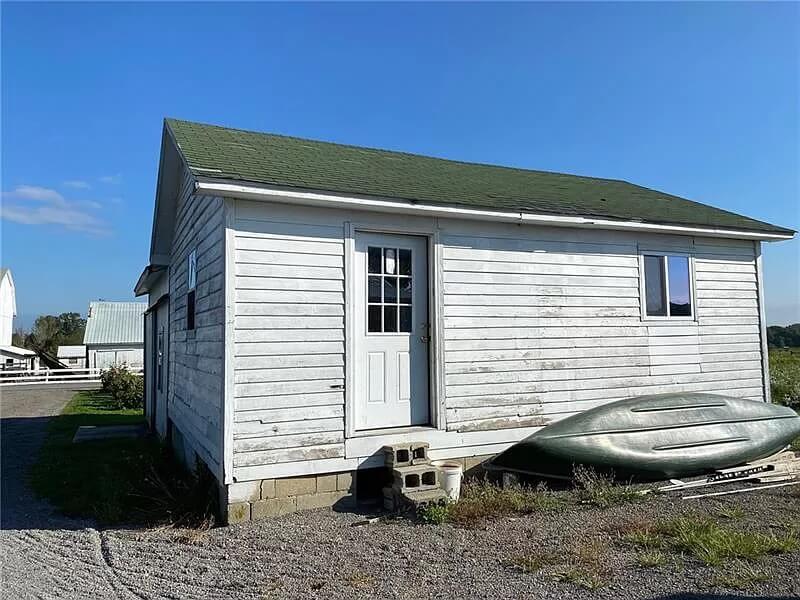
A view of the garden and another of the property from the road.
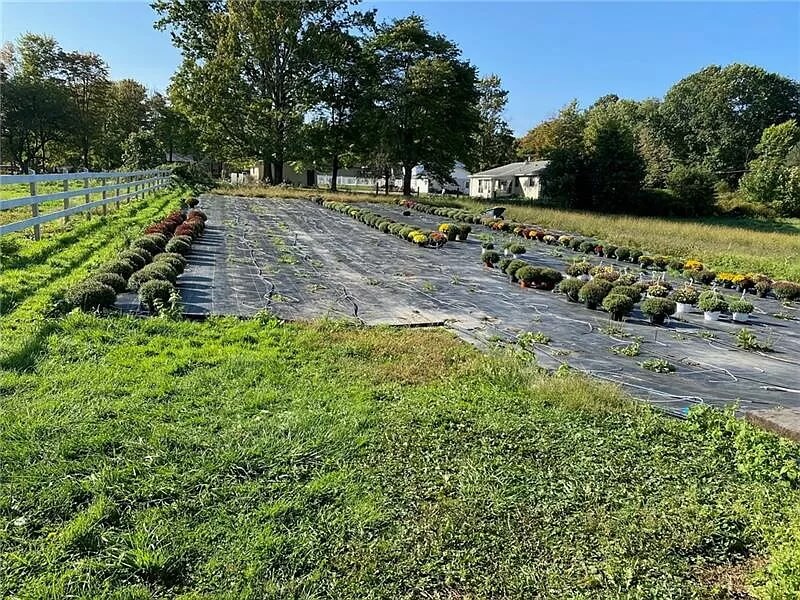
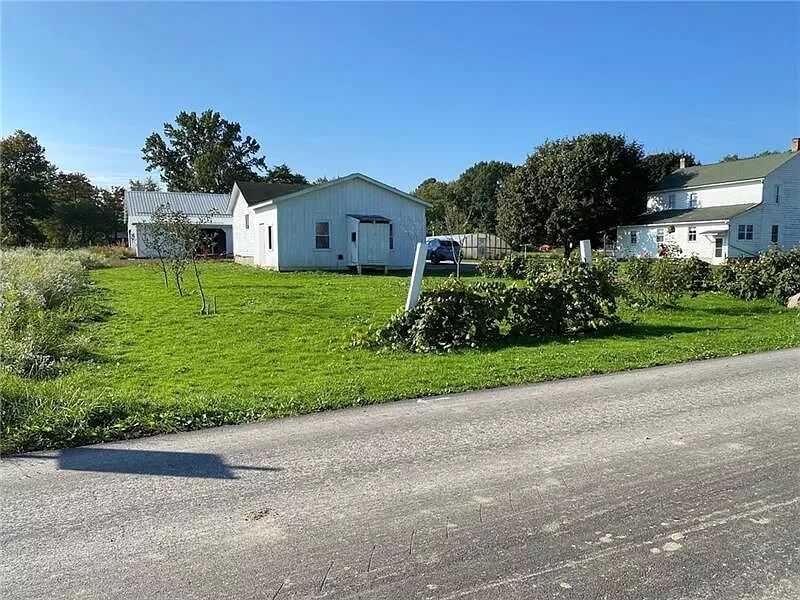
This home is said to have six bedrooms, zero bathrooms, is 1,809 square feet in size, and the lot is 5.6 acres. The price?

It’s currently listed at $175,000 by Keller Williams Realty.



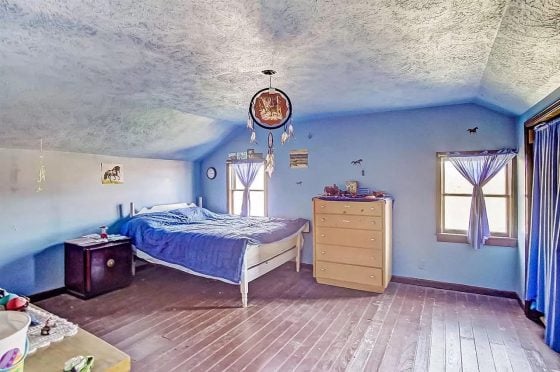
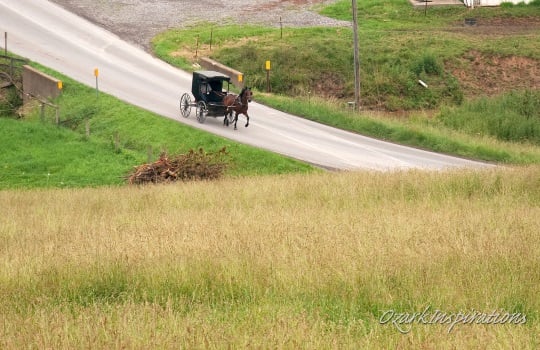
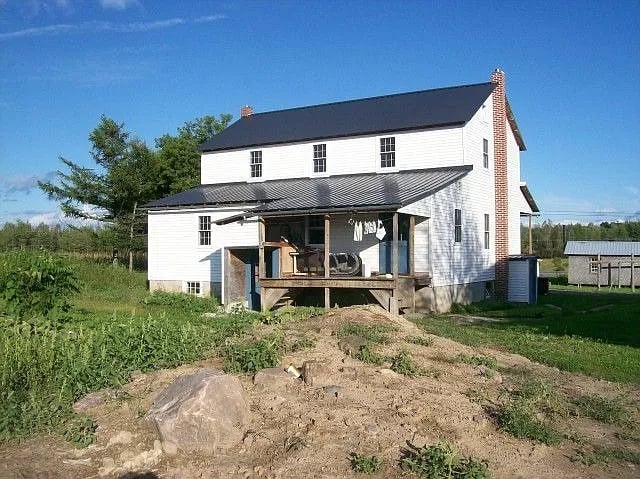
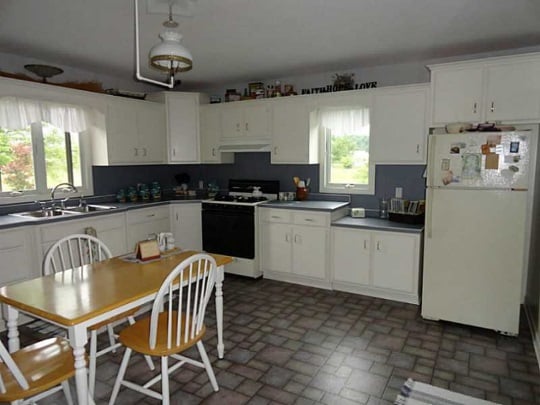
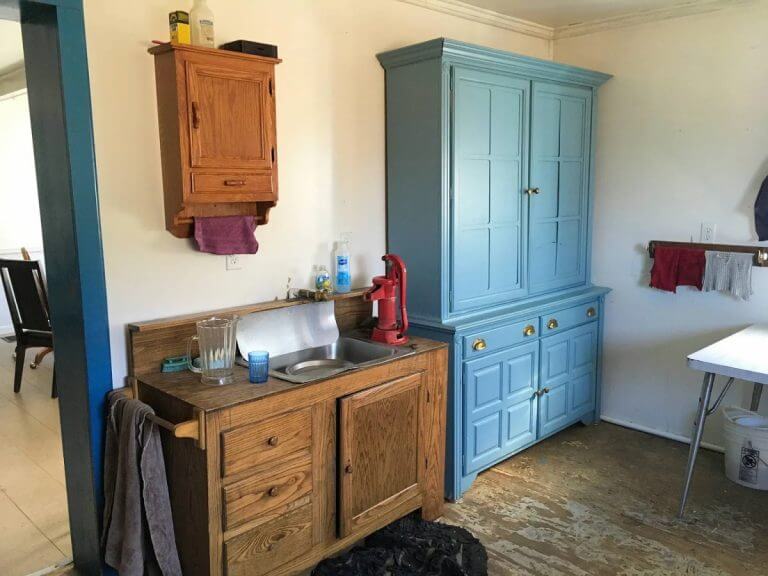
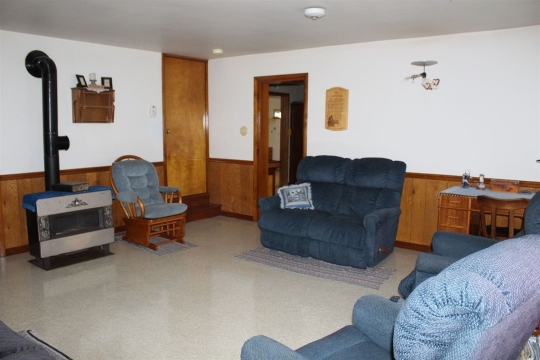
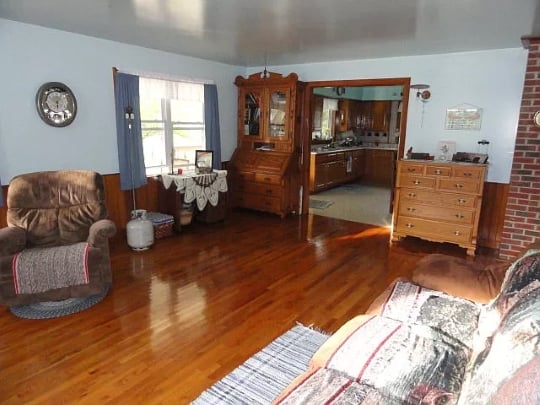
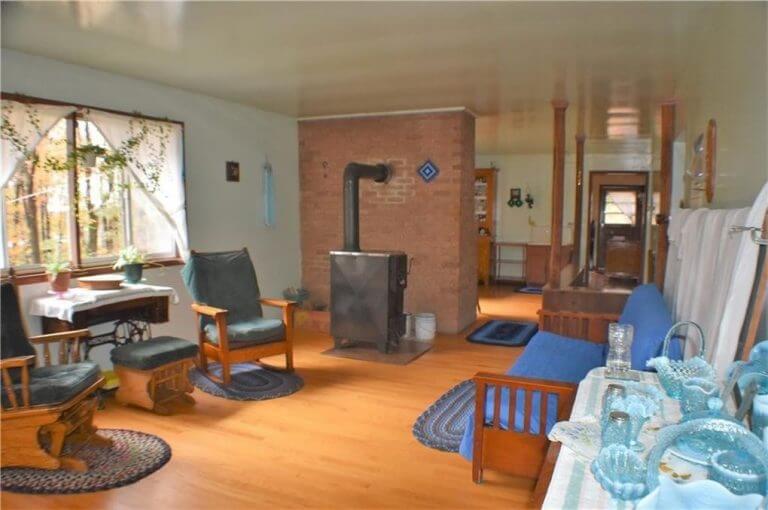
The House
Generally everything looked pretty good, although the house could use some paint, especially one side of it where it looked like it was peeling. Also there seems to be a drainage problem in the basement–I could almost smell mold and mildew just from the picture–that would need to be fixed. The thing that especially caught my attention was “zero bathrooms”. I figure this place must be Swartzentruber due to the plainness of everything, despite its cozy look. Surely there must be a place to wash up, brush teeth, etc. but especially “calls of nature”. Did the occupants here use an outhouse? And in bad weather there must be some kind of “water closet” in the house to “do your business”. I imagine maybe chamber pots come in handy in a house like this when going to the outhouse is impractical. Also old fashioned ceramic pitchers and basins for washing up might be used (I’m guessing)? As I understand, once the “hole” or pit over which the outhouse is built has served its purpose it has to be covered over with dirt, a new pit dug and the outhouse moved overtop of the new pit. I’m not sure how frequently this needs to be done, but perhaps someone posting here might know. How do the Swartzentruber Amish wash their clothes? Even the old wringer washers need electricity, unless one can be had where the agitator operates with a hand crank; I’ve seen antique wringers that can be cranked by hand. I imagine they most likely among all the Amish groups make their own lye soap. My grandmother made her own lye soap in the 1950s and early 60s as she took in laundry to wash–she had a wringer washer in the basement, but it and the wringers were both operated with electricity. The dirty water and rinse water went down a sink drain but the basement floor also had a seep away drain.
Back in the day I lived for a bit over 7 years with an outhouse that was nothing but a 55 gallon drum with both ends cut out, sunk fully into the ground and a shack built over it. (With the luxury of a carpeted seat… this was Montana, can’t have your rear freezing to the seat.) Just me using it but 7 years didn’t make a noticeable difference in the “contents”.
Reply to Reziac
I suppose if I had to I could live with using an outhouse but most certainly not willingly–if you didn’t put something in there, maybe like Rid-X, the stink would eventually become almost overpowering (??). If the 55 gallon drum had holes in it and you dumped a bunch of water into it occasionally maybe it would function like a cesspool, but I guess that requires a bunch of stones/gravel around the pipe or in this case a drum so that the wastewater could distribute into them–just guessing. It’s amazing that after 7 years, if I understand what you mentioned, the drum didn’t approach being full. Funny the things we end up talking about on a website about Amish folkways and customs. I can imagine how cold it would have been in winter this being Montana–I imagine it would have been just as horrible in the summer with the heat and probably flies. Montana has a number of fairly large Indian reservations; if some Native Americans chose to live more in a traditional way there must be some similar way they had to answer a call of nature.
A New Wilmington PA Amish Home for Sale
I live in a small rural community that is also home to Swartzentruber Amish. Monday is laundry day. First my neighbor heats the water for the wash on a wood stove and then pours this heated water into an old Maytag wringer washing machine. Maytag appears to be the machine of choice for the Amish. This machine is run by a gas engine and does prodigious amounts of laundry in a day.
My neighbor wanted a juicer which I ordered “used” for her on Ebay and then her husband hooked that up to a small gas engine and she uses it outside on her porch. The Amish are very clever and find ways to use some labor saving devices.
Fuel
The comment on washday made me wonder where all the wood is coming from to burn as fuel. I imagine Swartzentruber Amish people must rely on woodlots on their land, but I have no idea how woodlots are managed. I know there is some technique of managing a woodlot. Still, it would seem that use of wood as fuel would have to be judicious; I do know that wood has to dry out before use as fuel and green wood is undesirable (forms too much creosote which can lead to chimney fires???).
I had an older friend who was a Quaker and did alternative military service with an Amish guy; they remained lifelong friends and he occasionally visited them in Michigan. He would often go in Fall or Winter and would visit other Amish people in their community. He told me that one of the impressions he got of Amish households is that their houses are rather cold in Winter as the more conservative Amish use wood or coal in stoves to heat the house and to cook food. Fireplaces are probably less used as I understand they are quite inefficient as far as heating the house is concerned–much of the heat goes up the chimney. Anyway, wood doesn’t come cheap and conservative use is the key as I understand. I guess some forms of animal manure can be used as fuel, but I can’t imagine using it that way in the house but perhaps other posters may correct me if I’m mistaken. Also with wood/coal is the periodic cleanup of ashes, which I guess make fairly good fertilizer. Certainly a lot more work than just pressing a button on a thermostat. And as for the water, I’m sure it’s well water, but do the Swartzentrubers have old fashioned pumps?